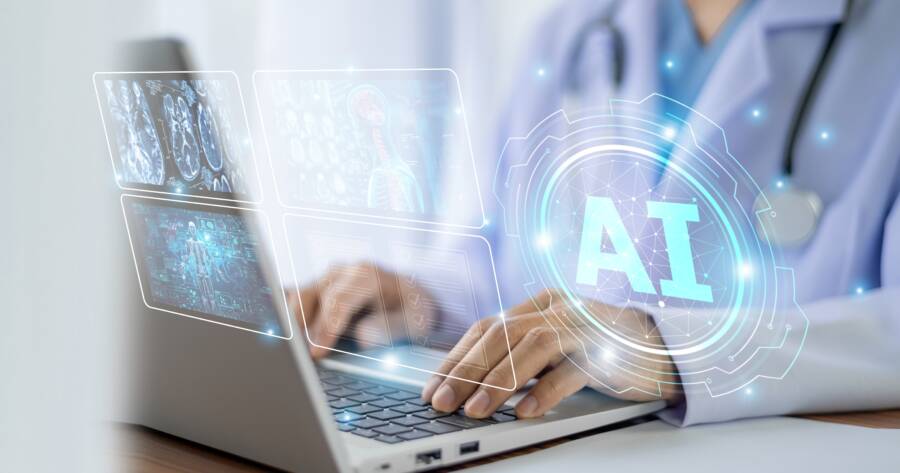Artificial intelligence (AI) is rapidly transforming healthcare by improving patient care, streamlining operations, and enabling groundbreaking research. From automating administrative tasks to powering advanced medical imaging and diagnostics, AI is revolutionizing the industry. This technology holds immense potential to further enhance healthcare delivery and outcomes. Let’s explore some of AI’s rapid advancements to see what kind of transformative change it’ll offer in the future.
Enhancing Diagnosis and Treatment
Accurate diagnoses are a crucial first step to finding suitable treatment options. Fortunately, AI significantly improves the accuracy of diagnoses.
Algorithms analyze medical images faster and more accurately than humans. For example, AI can detect early signs of diseases like prostate cancer, allowing for timely interventions. Additionally, AI personalizes treatment plans. By analyzing patient data, AI suggests the most effective treatments. This leads to better outcomes and fewer side effects.
Streamlining Operations
AI optimizes healthcare operations by automating routine tasks. This reduces the workload for medical staff. For instance, AI-powered chatbots handle patient inquiries. Likewise, AI-powered systems can be used to interpret patient data and identify potentially life-saving trends. This frees up time for healthcare professionals to focus on more complex tasks.
Moreover, AI predicts patient admissions. This helps hospitals manage resources more efficiently. Improved operational efficiency means better patient care.
Drug Discovery and Development
AI accelerates drug discovery and development. Traditional methods take years and are costly. AI speeds up the process by analyzing vast amounts of data. It identifies potential drug candidates quickly.
Furthermore, AI can predict how new drugs will interact with the body. This reduces the risk of side effects and saves critical time in the patient’s recovery journey. Consequently, the right treatments reach patients faster and at lower costs.
Personalized Medicine
Personalized medicine is another promising area. AI can tailor treatments to individual patients. By analyzing genetic information, AI identifies the best treatment options. This is taking personalized care to the next level.
Needless to say, this approach improves the effectiveness of treatments. Patients receive care that is specifically suited to their needs, which is optimal. Personalized medicine represents a shift from a one-size-fits-all approach and will soon be the status quo.
Predictive Analytics for Preventive Care
AI isn’t only for medical professionals in clinics and hospitals; it’s also for people to take control of their own health! Predictive analytics is a powerful tool for preventive care, which can keep people healthy and out of the healthcare system.
AI analyzes patient data to identify health risks. For example, AI can predict the likelihood of heart disease. This enables early interventions, which can prevent severe health issues. Preventive care not only reduces healthcare costs but also improves patient quality of life.
Ethical Considerations and Challenges
Despite its potential, AI in healthcare faces challenges. Ethical considerations are paramount. Patient data privacy must be protected. Additionally, there is a need for transparent AI algorithms.
Healthcare professionals must understand how AI makes decisions, as trust in AI systems is crucial for widespread adoption. Addressing these challenges will ensure the successful integration of AI in healthcare.
Artificial Intelligence In Healthcare Is Just Getting Started…
AI holds immense potential in transforming healthcare. From enhancing diagnosis and treatment to streamlining operations, its benefits are vast.
The rapid advancement of AI promises a future where healthcare is more efficient, personalized, and accessible. Embracing AI while addressing ethical challenges will lead to a healthier world.
